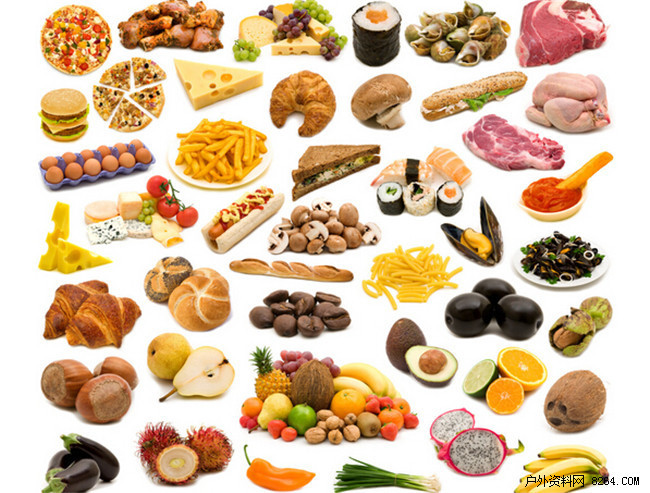Outdoor sports consume a lot of people's physical strength. At this time, it is necessary to take food from time to time to supplement the physical strength. So we need to choose food before we do outdoor sports. Then how to classify outdoor food?
The main purpose and needs of participating in outdoor sports and replenishing food
1. Give or provide energy to the body for the energy needed for the activity
2, to eliminate hunger, make the body more comfortable
3, to improve the efficiency of body functions in sports and help restore as soon as possible
4. Add fun to outdoor hiking and camping
Outdoor food and nutrition are made up of those nutrients?
The food and nutrition of outdoor sports are basically the same as the nutrition we need in daily life, just to maintain the status in the event and convenient and quick supplement, and the rest of the daily journey can be quickly restored, and our daily food nutrition. Slightly different.

We know that carbohydrates, proteins, fats, vitamins, minerals, and water are the six basic nutrients that keep our body functioning properly.
Carbohydrates
Contains sugar and starch, which are abundant in rice, noodles, grains, bread, baked quail and other foods; they provide energy to muscles by converting them into glycogen. The carbohydrates contained in the carbohydrates can also help digestion and help control the body's fat and cholesterol levels.
protein
It plays an important role in the generation of new tissue in the human body and the maintenance of the original organization, including muscles, hair, and red blood cells. Proteins are found in large quantities in pork, beef, poultry, fish, beans, and nuts; the basic human enzymes, antibodies, and hormones need to be produced by proteins, and they also maintain the balance of proteins inside and outside the tissues.
fat
It is the source of energy consumed when the body is in a state of rest or long-term aerobic exercise. It is divided into animal fat and vegetable fat; animal fat comes from animal meat, butter, etc.; vegetable fat comes from peanut oil, soybean oil, rapeseed oil and so on. Most animal fats contain large amounts of saturated fatty acids. Excessive consumption can lead to cardiovascular disease and cancer. Relatively speaking, vegetable fats mostly contain large amounts of unsaturated fatty acids and are more beneficial to body health than animal fats.
Vitamins
It is a catalyst for metabolism in the human body. Vitamin A is essential for the normal functioning of the human immune system. Vitamin A can also help protect eyesight; Vitamin B helps the cells to burn into energy, and B1 helps the normal nervous system. Operation; D promotes calcium and phosphorus absorption in the intestine.
Minerals
It is an important material that constitutes human tissue and maintains normal physiological activity. Trace elements calcium, phosphorus, and magnesium help strengthen bones; iron is responsible for transporting oxygen in the blood; sodium and potassium regulate blood pressure; zinc contributes to energy conversion; and iodine helps control energy consumption. Helps to strengthen teeth.
water
Is the main material in the human body, the proportion of 60% -70% of body weight, water regulates body temperature through the form of sweat, and is responsible for the transport of nutrients and waste between cells. Water is also a major component of muscles and cells, affecting the occurrence of intracellular chemical reactions.
The basic calorie consumed by the human body every day is based on body weight × 30 calories/kg, male about 2,000 calories, and female about 1500 calories.
Adult's calorie formula 655 + 9.563 × (W) + 1.85 × (H) - 4.676 × (A) (W: weight, unit kg; H: height, unit cm; A: age)
Heat consumed per hour in the main outdoor exercise mode (Mets coefficient × (weight + weight) = calorie)
The calorie limit that a human body can consume every day is about 4,000 calories (twice the amount of basic calories). Exceeding it will cause extreme fatigue and physical strength will not be easily restored. Remove the rest time, you can walk 6-7 hours a day, low-altitude mountain climbing 4-5 hours, 2-3 hours high altitude mountaineering. Normal weather can travel 25-30km per day at low altitude and 10-15km at high altitude. It is better to have a shelter or a retracement in case of bad weather, because it takes 2 hours to exhaust all physical fitness and it is completely unnecessary.
The basic calorie plus exercise consumption is the amount of calories you need to get from food every day.
Whitening Mouthwash,Mouth Rinse,Mouthwash For Bad Breath,Mouthwash For Canker Sores
Zchoise Cosmetic Factory , https://www.zchoise.com